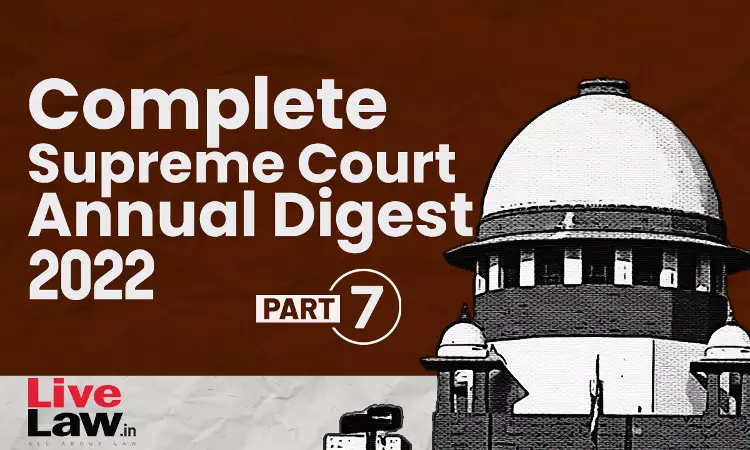- Home
- /
- Top Stories
- /
- Complete Supreme Court Yearly...
Complete Supreme Court Yearly Digest Part-7
LIVELAW NEWS NETWORK
19 Feb 2023 10:19 AM IST
Insolvency and Bankruptcy Code, 2016Insolvency and Bankruptcy Code, 2016 - Appeal challenging NCLAT order which reversed the order of the NCLT wherein it had held that the application under Section 9 of the Insolvency and Bankruptcy Code, 2016 was not time-barred - Allowed - The failure of the NCLAT as the first appellate authority to look into a very vital aspect such as this, vitiates...
Next Story



